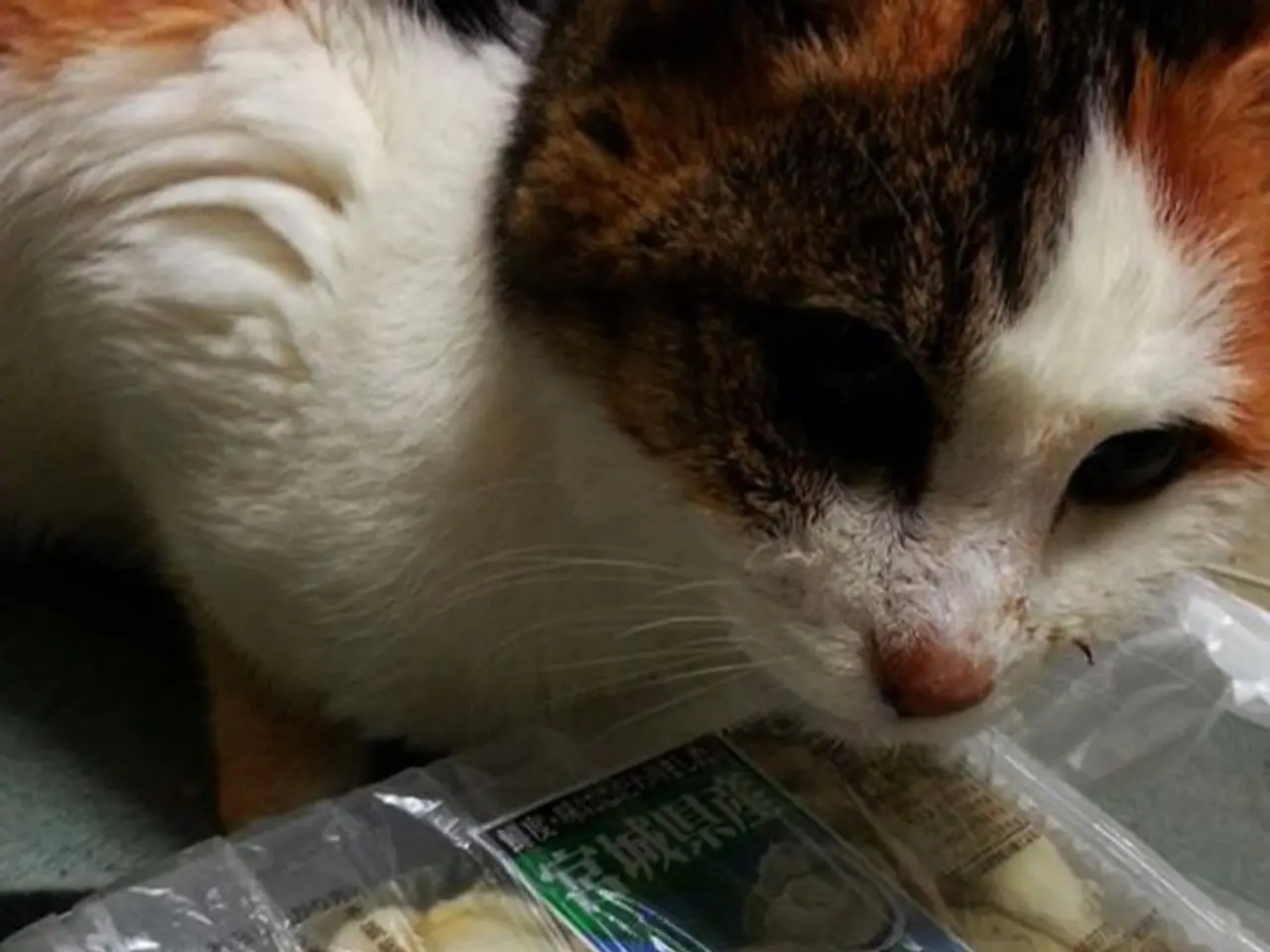Is the grain-free diet a healthier option for felines? Veterinarian reveals insights on this exclusive feline feeding plan
Cats, unlike their human counterparts, do not have a natural need for grain-free diets. In fact, a majority of cats with no diagnosed allergies thrive on highly digestible and low-residue foods, which may not necessarily be grain-free.
Grain-free cat food, as the name suggests, is completely free from grains such as rice, oats, barley, wheat, and corn. Instead, the basis of its composition typically consists of high-quality animal proteins, vegetables, fruits, and alternative carbohydrate sources like potatoes or peas. However, it's important to note that many grain-free foods still rely on cheaper, plant-based ingredients such as legumes and pulses.
Contrary to popular belief, cats do not suffer from gluten-related digestive disorders, nor do they have a need to eliminate gluten from their diets. Similarly, they do not suffer from coeliac disease, so avoiding gluten is not necessary.
However, a potential link between dilated cardiomyopathy (DCM) and grain-free food has been found in dogs and cats to a lesser degree. This potential link is thought to be due to the ingredients that replace grains, with many of these diets heavy in legumes or pulses such as peas or lentils. It's crucial to mention that there is not enough research to determine the long-term effects of feeding a grain-free diet to cats.
Some cats may have sensitive stomachs, but a grain-free diet is unlikely to offer relief for them. If your cat has a digestive issue, it's best to consult with a vet before considering a grain-free diet. For the majority of cats with no diagnosed allergies, the best types of food should be highly digestible and low residue.
It's essential to remember that each cat is unique, and what works well for one may not work for another. If you're concerned about your kitty's diet or have any questions about grain-free diets, speak with your vet. They can provide personalised advice based on your cat's specific needs and health status.
In conclusion, while grain-free cat food may seem like a trendy choice, it's not necessarily a healthier option for all cats. Grains are an important source of nutrition for cats, and we don't yet know the full extent of feeding grain-free diets to our pets long term. Always consult with a vet before making any significant changes to your cat's diet.
Read also:
- Impact of Alcohol on the Human Body: Nine Aspects of Health Alteration Due to Alcohol Consumption
- Understanding the Concept of Obesity
- Tough choices on August 13, 2025 for those born under Aquarius? Consider the advantages and disadvantages to gain guidance
- Microbiome's Impact on Emotional States, Judgement, and Mental Health Conditions








